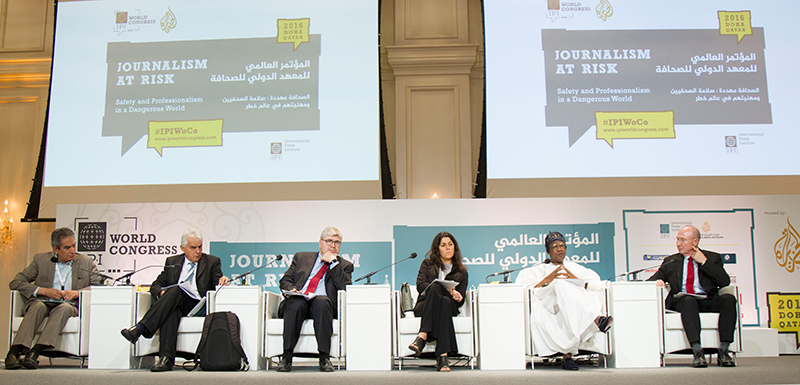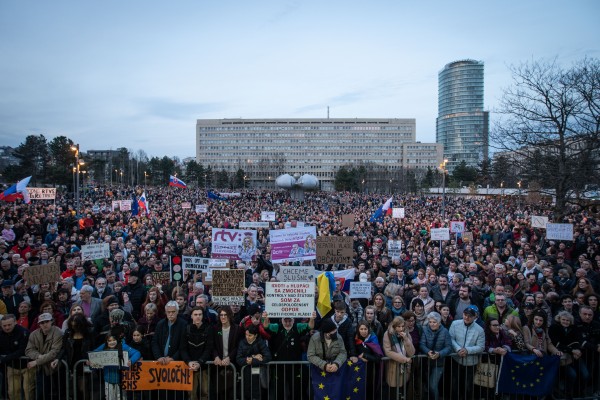At least 110 journalists lost their lives in connection with their work in 2015, and perhaps as many as 35 more, according to the International Press Institute (IPI), which has led many institutions to push for concrete action to prevent further violence against journalists.
One such example is the International Declaration on the Protection of Journalists, which was presented during the discussion “Promoting Safety through International Mechanisms and Newsroom Protocols” as part of IPI’s 2016 World Congress.
The Declaration focuses on the responsibilities of states and institutions involved in journalism, and it provides principles intended to promote greater safety for journalists reporting across the globe.
“There is a crisis in journalism around the world, so it’s very necessary for media organisations to take on the burden of safety as its highest priority,” John Daniszewski, vice president of international news at the Associated Press, said.
The document is based on a number of existing conventions and international laws, and attempts to bring together all stakeholders, including governments and media organisations.
According to Daniszewski, in order to prevent violence against journalists, governments must be held accountable for their actions – or lack thereof.
“Governments have certain obligations under international law, and I think moving this [Declaration] into the governmental sphere is a really useful step,” he said.
Journalists are also encouraged to report on acts of violence committed against other journalists.
“We have to have full solidarity with our colleagues,” Mostefa Souag, acting director general of the Al Jazeera Media Network, said, adding that violence against journalists needs to be covered to hold people and institutions accountable.
Impunity for such crimes has been universally acknowledged as a core cause of violence against journalists, IPI Executive Director Barbara Trionfi said. In the vast majority of cases in which journalists are murdered, no one is brought to justice. Souag said the Declaration was vitally important because it mandates that governments that fail to take action be held accountable.
“All we’re asking is for governments not to hurt journalists,” he commented.
Daniszewski noted that journalism groups have similarly developed a set of global principles intended to improve safety for freelance journalists. However, he said, the principles on their own would not lead to necessary change.
“I think public opinion needs to be moved,” he explained. “I think you can write about these issues, write about impunity against journalists. There are a lot of people of good will who care about these issues, but the more they’re talked about, the more likely they are to be implemented.”
The Declaration presented today is expected to encourage governments and media institutions across the globe to promote safety among journalists and to take action when it comes to violence against journalists, Trionfi said.
“The more people we can get to support this Declaration the better chance we have to make it official,” Souag added.



